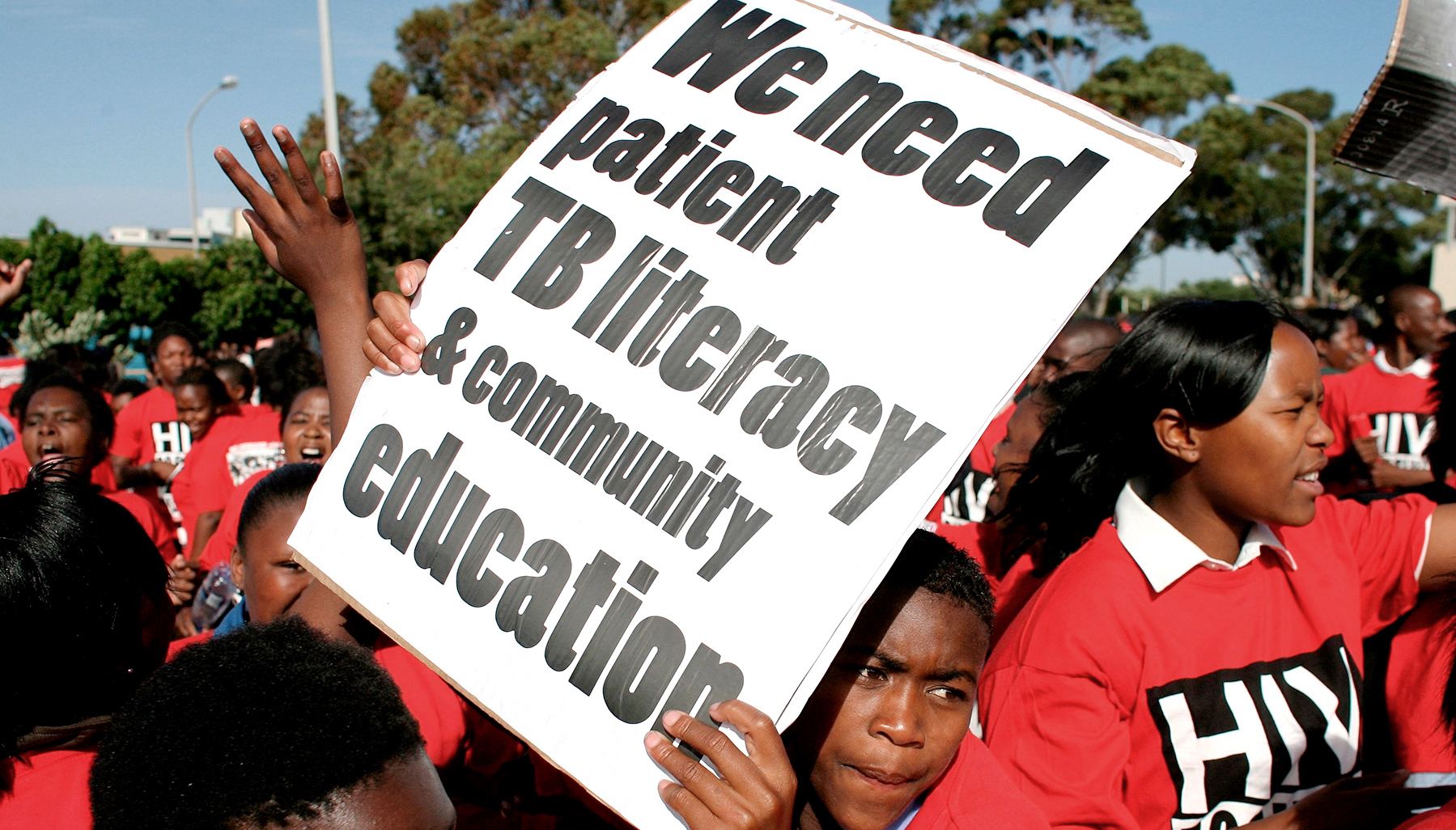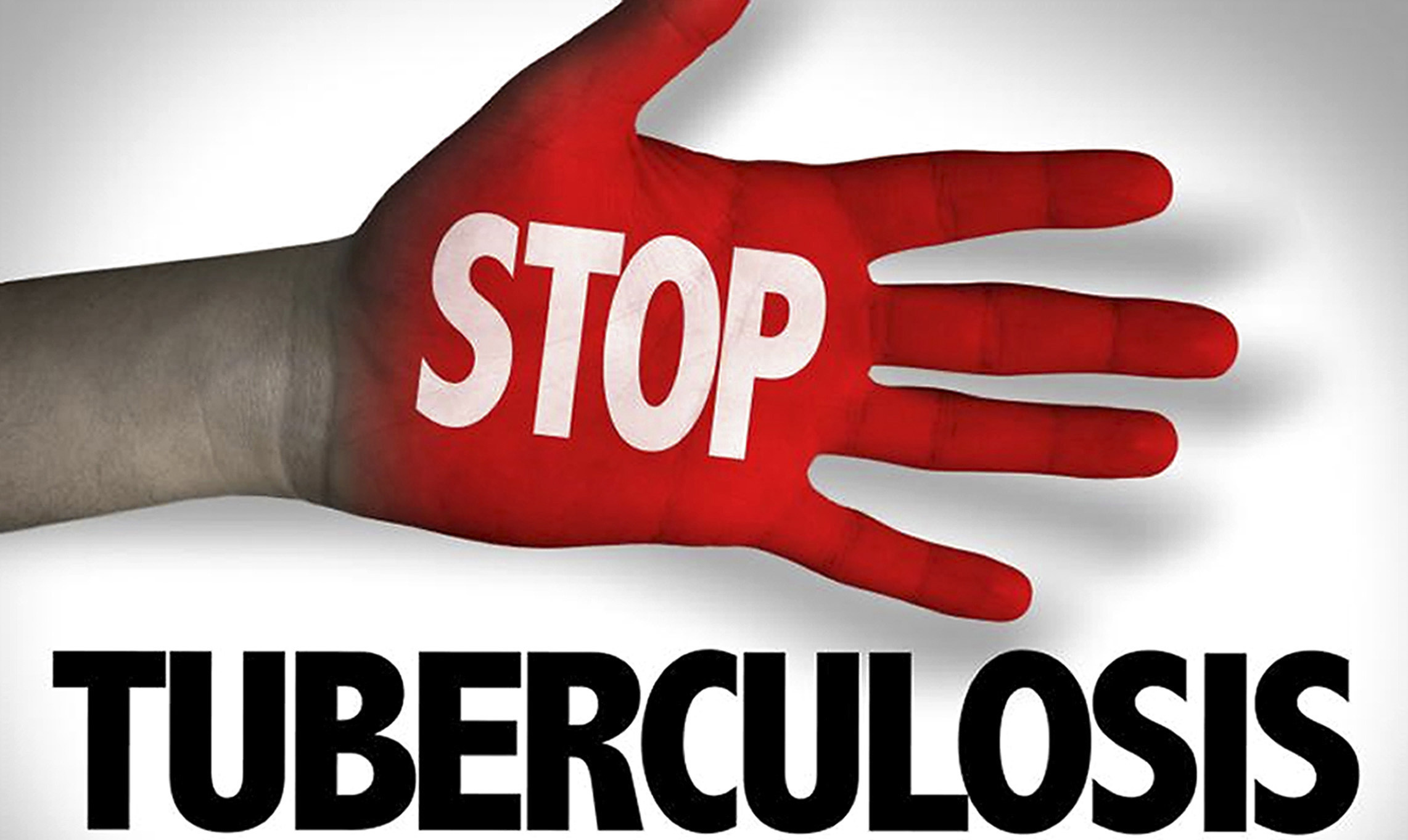SPOTLIGHT IN-DEPTH
TB and mental health – it’s a complex relationship, but the gap in support is huge

Tuberculosis and all the disruption and stress that goes with it can take a toll on a person’s mental health, and mental health problems can in turn make them more vulnerable to TB. In the wake of World Mental Health Day 2022, Tiyese Jeranji explores the complex links between mental health and TB.
Though these interconnections between tuberculosis (TB) and mental health are complex, they are important to understand, especially in a high TB burden country like South Africa where more than 300,000 people are estimated to fall ill with the disease every year. TB is thought to claim between 50,000 and 60,000 lives per year.
While South Africa has a large TB programme, Spotlight’s reporting in recent years suggests that mental health services in the public sector are generally falling short and there is little planning or capacity to support people who have both mental illness and TB. South Africa’s existing mental health policy expired in 2020. The Department of Health told Spotlight in 2021 that a new policy is in the works. This week, Foster Mohale, National Department of Health spokesperson, said consultations on the new policy are still under way.
The evidence
The World Health Organization (WHO) said in 2017 that the prevalence of mental health disorders such as depression and anxiety among people with TB is between 40% and 70%. There are several factors at play, according to the WHO.
“Patients with mental disorders are at an increased risk of exposure to TB infection with higher rates of homelessness, and residence in shelters and group homes. Patients with mental disorders also carry other risk factors for TB, including smoking, poor nutrition and comorbidities such as diabetes and HIV infection. In addition, people living with TB and mental disorders are less likely to seek healthcare and may be less able to adhere to treatment, with consequent adverse treatment outcomes, including morbidity, mortality, drug resistance and ongoing disease transmission,” read the WHO statement.

Patients with mental disorders are at an increased risk exposure to TB infection, with higher rates of homelessness, and residence in shelters and group homes. (Photo: medicinenet.com / myhealth1st.com / Spotlight)
The evidence that mental health problems are correlated with TB is compelling. A systematic review published in the British Medical Journal (BMJ) found that individuals with illnesses such as depression and schizophrenia are at an increased risk of becoming sick with TB.
The implications of this are far-reaching. “The finding that mental illnesses constitute risk factors for TB,” write the authors of the BMJ article, “suggests that tackling poor mental health and its underlying drivers may reduce TB incidence. In LMICs with a high TB incidence, poverty is consistently associated with common mental illnesses. Social protection schemes that lift individuals out of poverty are known to improve mental health and reduce TB risk factors, suggesting that tackling poverty and associated poor mental health through investment in wider social policies could help reduce TB incidence.”
A complex relationship
The relationship between TB and mental health disorders is complex, says Dr Grania Brigden, Senior TB adviser at the Global Fund. She tells Spotlight that people with TB can have a pre-existing mental health disorder, with studies showing that 10% to 52% of people with TB also suffer from mental health disorders.
“A pre-existing mental health disorder can increase your risk of developing TB because it can have a negative impact on your immune system. TB treatment can cause mental health symptoms/disorders. Certain groups of people are at an increased risk of mental health disorders, particularly depression, and TB – such as homeless people, people who misuse drugs and/or alcohol, or people living in poverty and/or malnutrition,” she says.
Read in Daily Maverick: “TB treatment to be shortened to four months for most SA children”
Dr Jennifer Furin, an infectious disease specialist, says stress around physical health and socioeconomic issues can contribute to mental health problems.
“So, let’s say there is a young woman who has small children and she finds out she has TB. She is unable to work because she is too sick and now she is stressed about how she will feed her children. She feels like a failure and so she is depressed and anxious,” says Furin. “The young woman has to go to the clinic often to fetch her medicines and her neighbours see her waiting for her TB medication and spread rumours she has TB. This leads to her feeling even more depressed. This is a common situation. People with TB need to be treated with love and compassion and offered support at all levels.”
Furin says any treatment that lasts for months can be a challenge. TB treatment currently takes a minimum of six months to complete. “People really want to be healthy and do their normal activities, and things that interfere with that can be a real challenge. When people face additional socioeconomic challenges – which can be caused by TB treatment if they cannot go to work because they have to go to the clinic – this can make mental health worse,” she says.
Visit Daily Maverick’s home page for more news, analysis and investigations
People need socioeconomic and psychosocial support and should also be screened routinely for depression and anxiety at the clinics, and there are simple scales for doing this, Furin says. “Those who screen positive can then be referred for additional care. Support groups can also be important for people living with TB so that they can relate to others who have been through similar experiences. Peer counsellors can also be useful, and people who are TB survivors should be trained and paid to support mental health screening and counselling for others who are undergoing TB treatment.”
She also points out that some TB medications can cause depression and anxiety.

The Mental Health Care Act provides for the integration of mental health into general health services to improve access and reduce stigma associated with mental health. (Photo: EPA / Nic Bothma)
Wieda Human, project coordinator and communications officer at TB Proof, says that cycloserine, a medicine sometimes used to treat drug-resistant TB, can cause depression. “Fluoroquinolones (a class of antibiotic drug) and cycloserine can also cause psychosis, for which isoniazid is more rarely thought to be the cause. If depression is significant in people with TB, a trial of antidepressant therapy can be provided and or psychiatric consultation. It is advised that should depression not improve after the trial of antidepressant therapy, then cycloserine and possibly also ethionamide should be stopped,” she says.
Mental health and adherence
On the face of it, it seems likely that someone struggling with depression may find it harder to keep taking their medicines as prescribed. “This is not an area well studied but there appears to be a correlation between depression and poor adherence to TB treatment,” says Brigden.
“Usually, people suffering from depression have less chance of a successful treatment outcome. This may be because they struggle with day-to-day activities, such as showing up at health appointments or taking their medication regularly. They may also suffer from memory loss or tiredness. All these factors jeopardise the successful completion of their TB treatment,” she says.
Read in Daily Maverick: “Government outlines nation’s TB recovery plan as testing volumes show improvement”
Furin makes a similar point. She says when people are depressed or suffering from anxiety or if they have substance use issues, this can affect the overall treatment experience, including adherence.
“TB can cause a great deal of suffering, and much of this suffering is from the mental and socio-economic stressors people have,” she says. “We should strive to alleviate suffering on all levels and in all ways. Not just to promote adherence and cure – which is important – but to make sure people living with TB can attain the highest state of health. Mental health screening and care are as important for TB as the TB medications are.”
Lack of screening
Most healthcare workers are not trained or equipped for managing the mental health challenges faced by people with TB, says Furin. She adds there is stigma around TB but there is also stigma around mental health.
“Unfortunately, people working in primary health clinics are often overwhelmed with work, so they only focus on handing out the medications and nothing else. They need to be supported and trained for doing screening, and the use of paid and trained peer counsellors for people living with TB should be encouraged,” she says.
According to Furin, there are basic screening scales that can be deployed to screen for mental health issues among people living with TB, including substance use.
“There is a need to make sure we equip people to address these issues as well, either through supportive counselling or through referral to other mental health professionals,” she says.
“Given the overlapping risk factors for TB and mental health disorders,” says Brigden, “there needs to be an integration of these two areas in training modules for those working at primary healthcare levels, as well as the communities in which they are located, such that the mental health of the person diagnosed with TB is reviewed and those with mental health disorders are screened for TB. This is what we call bi-directional screening.”
Mental health support for TB patients
Human says currently mental health support is a major gap in TB care in South Africa and she believes counselling is an important intervention that is poorly delivered, if at all.
“Counselling should start early in a patient’s TB care journey,” she says. “A support package for each patient with TB should include TB counselling and referral to a psychologist for mental health support and substance abuse or social worker for assistance to apply for nutritional support and social grants, where necessary. It is also important to make it easier for people with TB to complete treatment by improving the current offering of decentralised TB treatment delivery/pick-up (for active disease and as prevention), for example, via the Centralised Chronic Medication Dispensing and Distribution programme (CCMDD) or home or workplace delivery,” she says.

(Photo: today.mims.com / Wikipedia)
“We must do more to support those with TB in order to tackle the leading cause of death in our country. Delivering high-quality counselling and integrating TB and mental health services can help strengthen TB care,” says Human.
Furin echoes the sentiment: “We need to provide more screening for mental health issues, more socioeconomic support, more peer help or counselling, and all of this needs to be available free of charge. There should also be access to substance use screening and treatment. All of this should be done with compassion and as a routine part of TB care.”
Department responds
Mohale says mental health is an important aspect of health and is crucial to the overall well-being of individuals and society. He says the Mental Health Care Act provides for the integration of mental health into general health services to improve access and reduce stigma associated with mental health.
“Many health conditions increase the risk for mental disorders, especially depression and anxiety. As mental health cuts across all medical conditions including TB, health workers at primary healthcare level are continuously trained using the Adult Primary Care (APC) tool to improve their skills in early identification, effective management and timely referral of those who need higher-level mental health interventions,” he says.
The APC tool is both a screening tool and a tool for treatment guidance when a mental health problem has been identified. “It points to which intervention should be employed. In cases where counselling is needed the tool guides towards counselling being included as part of the interventions to be provided to the client which can also include referral in instances where advanced interventions are needed,” says Mohale.
“Science tells us that comorbidity (co-occurrence) of a mental and a physical disorder complicates help-seeking behaviour, delays, or prevents diagnosis and treatment, and negatively influences prognosis,” he says, adding that this is why the department has institutionalised screening for mental health problems at primary healthcare to further strengthen early identification and intervention for mental health problems.
This article was published by Spotlight – health journalism in the public interest.




















Comments - Please login in order to comment.